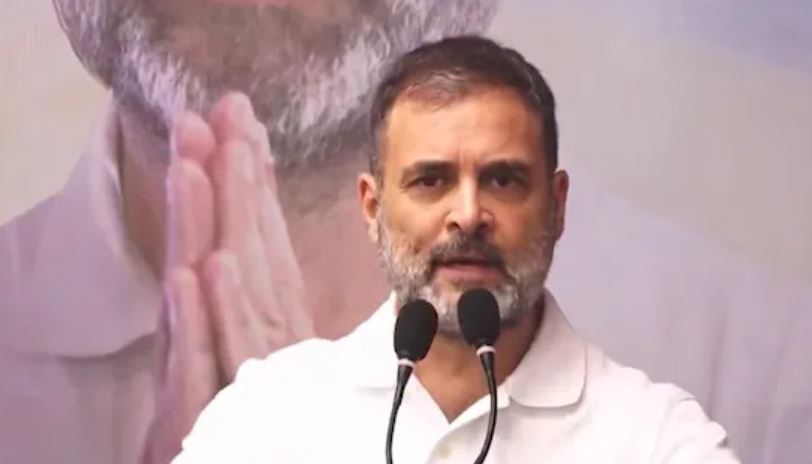In a scathing critique of the government’s handling of compensation for Agniveers, Rahul Gandhi, Leader of the Opposition in the Lok Sabha, underscored a critical distinction between compensation and insurance. This comes in the wake of the tragic death of Agniveer Ajay Kumar, whose family reportedly did not receive the promised compensation, igniting a heated debate on the treatment and recognition of martyrs in India.
Gandhi’s Accusation
Rahul Gandhi’s criticism was conveyed through a poignant video posted on his X handle. In the clip, he shared the plight of Ajay Kumar’s father, emphasizing the family’s struggle and the lack of financial support from the government. Gandhi reiterated that the family only received ₹48 lakh from Army group insurance and ₹50 lakh insurance from ICICI Lombard, but no official compensation from the Centre.
The Core Issue: Compensation vs. Insurance
“There is a difference between compensation and insurance,” Gandhi asserted. He questioned why the Kumar family had not received the compensation amount or their salary arrears. Highlighting the disparity in the treatment of martyrs, he stated, “The truth is that there are two types of martyrs in India today. One is a Nirmal Jawan and the other is the Agniveer. Both will become martyrs, but one will get a pension while the other won’t. One will have canteen facilities while the other won’t. If someone dies for the country, he should be respected.”
Government’s Rebuttal
The issue of Agniveer compensation has been a contentious point between the government and the Congress. On July 1, during a Lok Sabha speech, Gandhi claimed that Agniveers were not entitled to any compensation posthumously. Defence Minister Rajnath Singh refuted this, asserting that Agniveers are entitled to ₹1 crore compensation from the Centre.
A Controversial Claim
In response to Singh’s statement, Gandhi accused the Defence Minister of misleading the nation. “Rajnath Singh ji, in front of Lord Shiva’s photo, lied to the entire country, the Army, and the Agniveers about the issue of compensation,” Gandhi said in a video posted on Wednesday. This accusation prompted the Army to issue a clarifying statement.
The Breakdown of Compensation
The Army’s statement detailed that Agniveer Ajay Singh’s family would receive a total of ₹1.65 crore. This includes ₹48 lakh from government insurance, ₹50 lakh from financial institutions under a memorandum of understanding, and an additional ₹39,000. Furthermore, the family is to receive ₹44 lakh ex gratia, ₹8 lakh from the Army welfare fund, approximately ₹13 lakh balance of pay till the completion of his tenure, and ₹2.3 lakh from the Seva Nidhi fund.
Calls for Transparency
Amidst this controversy, the Congress has demanded a ‘white paper’ from the government on the Agnipath scheme. The demand for transparency highlights the ongoing friction and lack of clarity surrounding the compensation and benefits entitled to Agniveers. The discrepancies in the amounts and sources of compensation reveal a need for a more structured and transparent approach.
Implications for Agniveers
The Agnipath scheme, intended to modernize and streamline the recruitment process in the Indian Army, has faced criticism and controversy since its inception. The scheme’s compensation and benefits structure, particularly in cases of fatality, have been points of contention. Gandhi’s criticism brings to light the need for equitable treatment and adequate support for the families of fallen soldiers.
Public Reaction
The public reaction to Gandhi’s statements and the government’s response has been mixed. While some applaud Gandhi for highlighting the issue and advocating for the families of Agniveers, others criticize him for politicizing the matter. The government’s attempts to clarify and justify the compensation amounts have also been met with skepticism and calls for greater accountability.
The Way Forward
Addressing the gaps in the Agnipath scheme and ensuring that the families of Agniveers receive their rightful compensation is crucial. The government must establish clear guidelines and transparent processes to prevent future discrepancies. Equally important is recognizing and honoring the sacrifices of all soldiers, regardless of their designation.
Conclusion
The debate over Agniveer compensation underscores a broader issue of how the nation values and supports its soldiers. As Rahul Gandhi continues to advocate for the families of Agniveers, the government faces the challenge of addressing these concerns and reinforcing the integrity of its compensation policies. This controversy serves as a reminder of the need for transparency, fairness, and respect in honoring the ultimate sacrifices made by the country’s defenders.
Soumya Smruti Sahoo is a seasoned journalist with extensive experience in both international and Indian news writing. With a sharp analytical mind and a dedication to uncovering the truth, Soumya has built a reputation for delivering in-depth, well-researched articles that provide readers with a clear understanding of complex global and domestic issues. Her work reflects a deep commitment to journalistic integrity, making her a trusted source for accurate and insightful news coverage.



